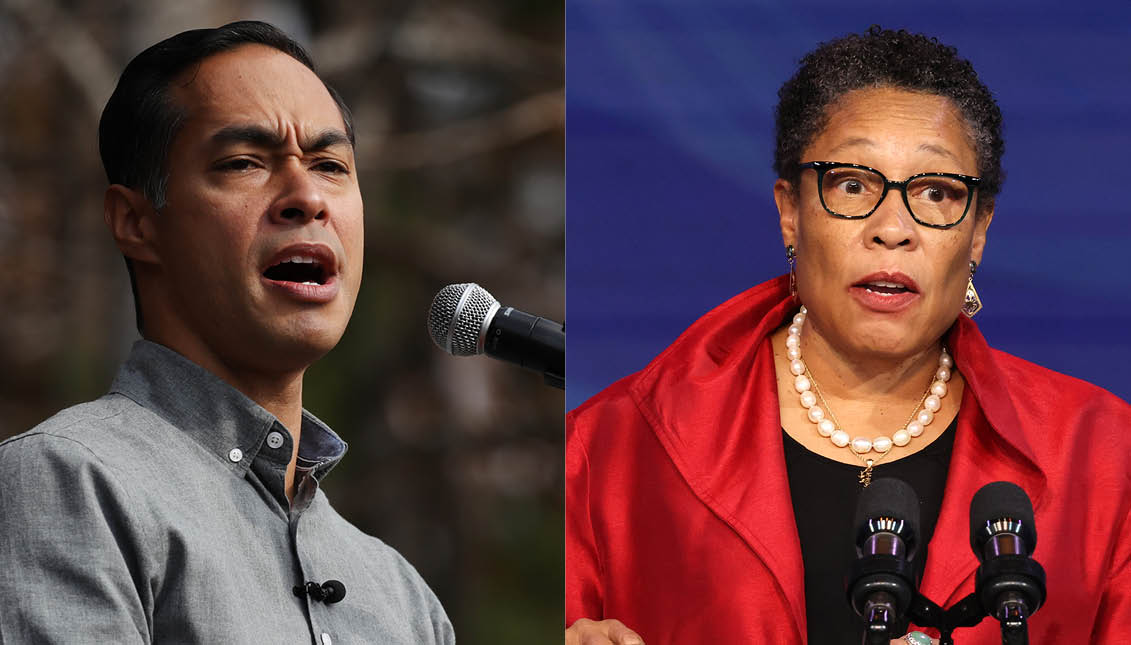
Marcia Fudge is bringing back Julián Castro-era HUD rules against housing discrimination
“Reinstating these rules, which HUD worked to finalize over several years, marks a major step forward,” Castro wrote.
Housing and one’s state of living has a direct impact on their future. Children who grow up in systematically-discriminated, low-income neighborhoods are more likely to attend low-funded schools, leading to lower college attendance rates, and future income.
Housing and infrastructure that lack investment also see higher rates of crime, heavier policing and are subjected to food deserts, and environmental injustice, further impacting the length and quality of life.
It’s a domino effect that goes beyond a brief summary.
Days into his presidency, Joe Biden issued four executive orders aimed at implementing further racial equity and systemic racism. Orders included directing the Housing and Urban Development department (HUD) to revisit the impacts of former President Donald Trump’s cuts to civil rights protections in housing laws and to begin the reversal process.
Now Joe Biden is continuing this initiative, by restoring Obama-era fair housing rules at HUD, that are critical to enforcing federal laws that prohibit discrimination on the basis of race sex religion, disability, and more.
On April 11, Biden issued a proclamation to recognize National Fair Housing month, the passage of the 1968 landmark legislation, the Fair Housing Act, which implemented civil rights protections in housing laws.
“My administration will continue our efforts to close persistent racial gaps in wages, housing, credit, lending opportunities, and access to higher education,” Biden said, adding that over the next five years, it it would “add an estimated $5 trillion in gross domestic product in the American economy.”
The actions on housing equity go further. The policy changes were announced by the White House Office of Management and Budget on April 13.
In a video statement recognizing Fair Housing Month, Marcia Fudge elaborated further on the Fair Housing act commenting it is “to bring an end to discrimination in housing and to eliminate the pattern of racial and ethnic segregation and economic disparities that have long existed in our neighborhoods and communities.”
She intends to reinstate rules under then-HUD secretary Julián Castro, which are critical to the enforcement of federal laws prohibiting discrimination on the basis of race, sex, religion and disability, among other protected categories.
First on the agenda is the 2013 rule that codified a standard known as “disparate impact.” It was aimed at making the housing industry justify overly restrictive criminal background check policies, as well as the use of artificial intelligence to predict creditworthiness. While proponents argued that the practices are not discriminatory, they have an disparate effect based on race.
The 2013 rule under Castro prevented landlords, lenders and other housing authorities from putting in place such discriminatory barriers to housing that have disproportionate impacts among Black and Latino residents.
This rule was weakened under Trump.
RELATED CONTENT
Former HUD Secretary Ben Carson made a rule requiring plaintiffs to reach a higher threshold to prove the “disparate impact.” Last October, a federal judge ruled to stop the agency from implementing the new rule just before it was finalized.
Fudge also seeks to reinstate a 2015 rule, the Affirmatively Furthering Fair Housing (AFFH) regulation that requires communities to identify and dismantle historic barriers to racial integration (segregation), or risk losing federal funds.
Carson terminated the program, citing it too complicated to enforce.
“Washington has no business dictating what is best to meet your local community’s unique needs,” Carson wrote at the time.
“The Trump administration set us back years in the push for fair housing and inclusive communities,” Castro wrote on Twitter on April 13. “Reinstating these rules, which HUD worked to finalize over several years, marks a major step forward.”
The Trump administration set us back years in the push for fair housing and inclusive communities.
— Julián Castro (@JulianCastro) April 13, 2021
Reinstating these rules, which HUD worked to finalize over several years, marks a major step forward. https://t.co/MWAyLg0SbJ
The Washington Post reported that HUD received over 7,700 complaints alleging discrimination last year alone, according to the agency.
Most of the complaints regarded housing discrimination on the basis of disability and race. A smaller bulk of complaints pertained to allegations by female tenants on sexual harassment.
But Carson’s words at the time of HUD’s rollback of AFFH offer something to consider — namely how the sweeping regulations to combat historic segregation will be implemented to protect people from such situations.
If the reinstating of Obama-era policies further complicate and delay the housing process, the rules may garner renewed pushback.











LEAVE A COMMENT:
Join the discussion! Leave a comment.